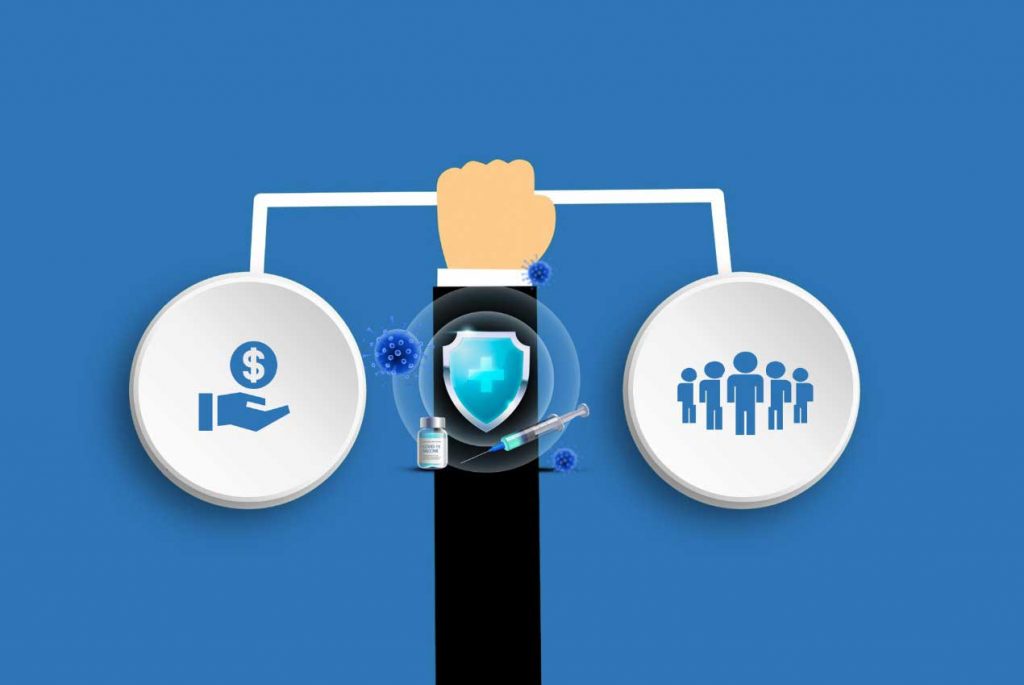Disruptive Forces in the Modern Health Economy

The healthcare landscape is evolving at an unprecedented pace. Rapid advances in technology, shifting policies, and rising consumer expectations are reshaping the way care is delivered and experienced. These disruptive forces are challenging traditional models, forcing organizations to adapt or risk being left behind. But alongside these challenges lie immense opportunities for innovation, growth, and transformation. In this blog, we’ll explore the key catalysts driving change in the modern health economy and uncover how they are redefining the future of healthcare.
The rise of disruptive technologies in healthcare
Technologies like artificial intelligence (AI), telemedicine, wearable devices, and advanced diagnostics are revolutionizing healthcare. AI-powered tools are enhancing decision-making, enabling faster and more accurate diagnoses while predicting patient outcomes with unprecedented precision. Telemedicine has broken geographical barriers, granting patients access to care from the comfort of their homes.
 Wearable devices, from fitness trackers to medical-grade monitors, empower individuals to actively manage their health while providing real-time data to healthcare providers. Advanced diagnostics, including genetic testing, are uncovering insights that enable personalized treatment plans. These innovations are not only improving patient outcomes but also streamlining operations, reducing costs, and challenging traditional healthcare delivery models.
Wearable devices, from fitness trackers to medical-grade monitors, empower individuals to actively manage their health while providing real-time data to healthcare providers. Advanced diagnostics, including genetic testing, are uncovering insights that enable personalized treatment plans. These innovations are not only improving patient outcomes but also streamlining operations, reducing costs, and challenging traditional healthcare delivery models.
By bridging gaps in accessibility and efficiency, disruptive technologies are paving the way for a more patient-centered and efficient system, fundamentally transforming the modern health economy.
How policy shifts are reshaping the health economy
Healthcare policies are undergoing significant changes that are redefining the industry. The shift toward value-based care is urging providers to prioritize patient outcomes over service volume, pushing for more efficient and effective care delivery. Drug pricing reforms are tackling affordability issues, aiming to make essential medications more accessible to patients while challenging manufacturers to innovate cost-effectively.
Additionally, policies emphasizing health equity are addressing disparities in care, ensuring marginalized communities receive the attention they deserve. These changes present challenges, such as adapting to new reimbursement models and managing financial pressures, but they also open doors for innovation and collaboration.
Providers, payers, and policymakers must work together to balance these dynamics, creating an ecosystem that benefits all stakeholders. For patients, these shifts promise improved access, affordability, and quality of care, marking a pivotal transformation in the health economy.
The evolving role of peptides in modern medicine
Peptides are gaining traction as powerful tools in modern medicine, offering targeted and effective treatments for a variety of conditions. Among the most promising advancements is the use of peptides like retatrutide, a novel therapy showing potential in weight management and metabolic disorders. By mimicking natural hormones in the body, these compounds can help regulate appetite, glucose levels, and fat metabolism, offering hope to patients struggling with obesity and related conditions.
 For those looking to explore options like the retatrutide peptide buy solutions are becoming more accessible as demand increases. Beyond weight management, peptides are being explored for their benefits in wound healing, anti-aging, and even cancer therapies. This growing interest underscores their ability to provide personalized, highly specific care. With continued research, peptides are poised to transform treatment landscapes, delivering innovative approaches that align with the goals of precision medicine.
For those looking to explore options like the retatrutide peptide buy solutions are becoming more accessible as demand increases. Beyond weight management, peptides are being explored for their benefits in wound healing, anti-aging, and even cancer therapies. This growing interest underscores their ability to provide personalized, highly specific care. With continued research, peptides are poised to transform treatment landscapes, delivering innovative approaches that align with the goals of precision medicine.
Challenges facing traditional healthcare models
Traditional healthcare models face mounting challenges that threaten their sustainability. Rising costs burden both providers and patients, making quality care less accessible. Inefficiencies in administrative processes and care delivery consume valuable resources, diverting focus from patient-centered outcomes. Workforce shortages further strain the system, with overburdened professionals struggling to meet the demands of an aging population and increasing chronic disease cases.
Meanwhile, patient expectations continue to evolve, with a growing preference for personalized, tech-driven, and convenient care experiences.
These pressures highlight the urgent need for transformation. Without innovation and adaptability, traditional systems risk falling behind, unable to meet the complex needs of modern society. Solutions such as integrating technology, adopting value-based care models, and addressing workforce challenges are critical to ensuring that healthcare becomes both sustainable and responsive. Traditional models must make these shifts to remain relevant in a rapidly changing landscape.
Preparing for the future of innovation in healthcare
The healthcare landscape is undergoing rapid transformation, driven by technological advancements, evolving policies, and groundbreaking developments like peptides. These forces are reshaping how care is delivered, making it more efficient, accessible, and personalized. However, navigating these changes requires adaptability, collaboration, and an unwavering commitment to innovation.
By embracing new technologies, addressing systemic challenges, and fostering partnerships across the industry, we can build a resilient healthcare system that meets the needs of tomorrow. The future holds immense potential for a more equitable and patient-focused approach, ensuring better outcomes for all. Now is the time to take bold steps forward and turn these opportunities into lasting improvements for the health and well-being of communities worldwide.



